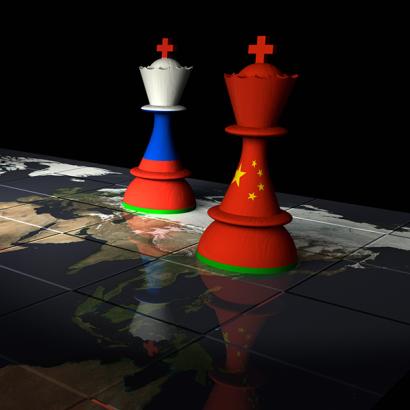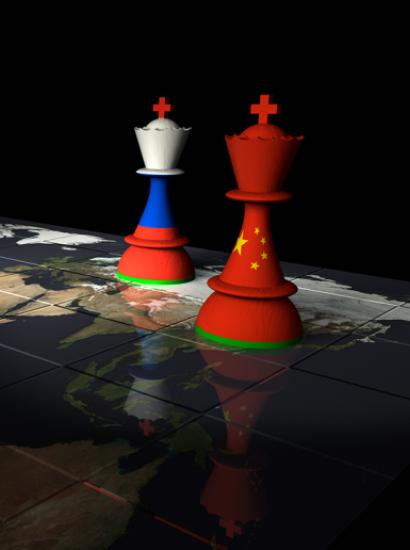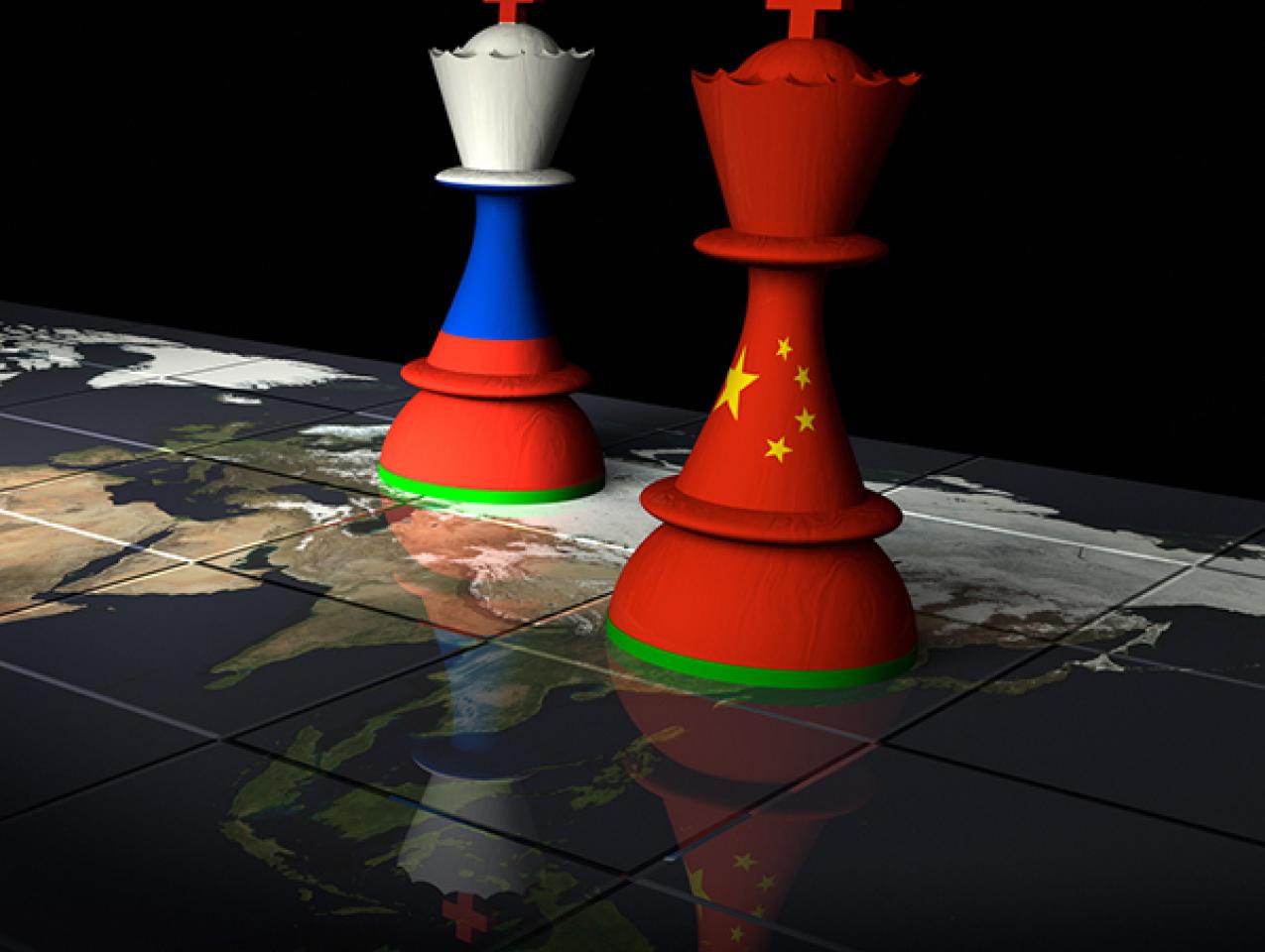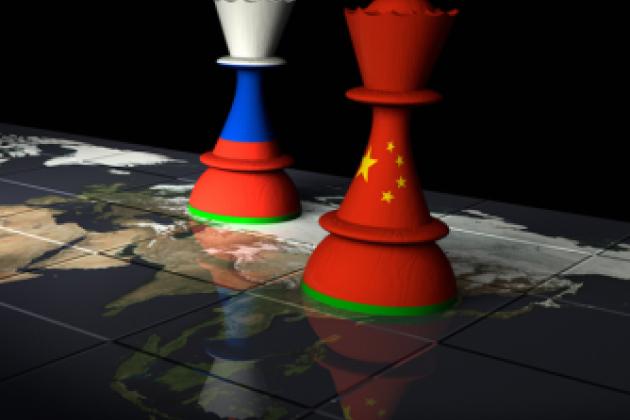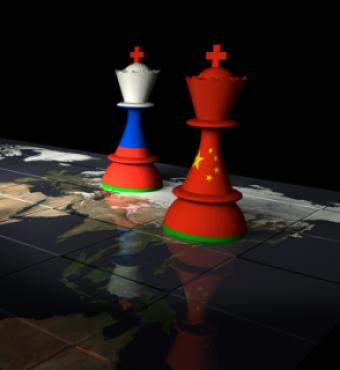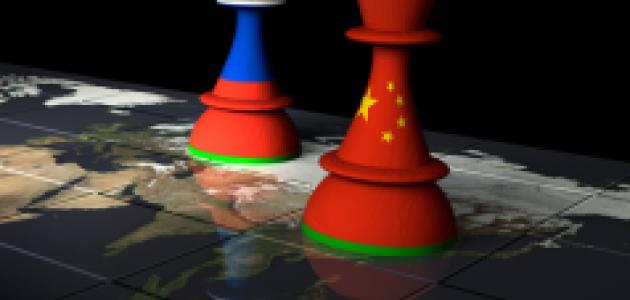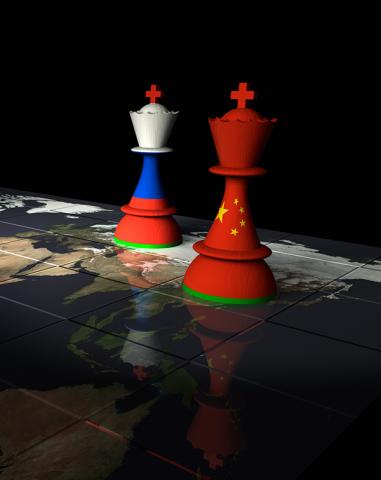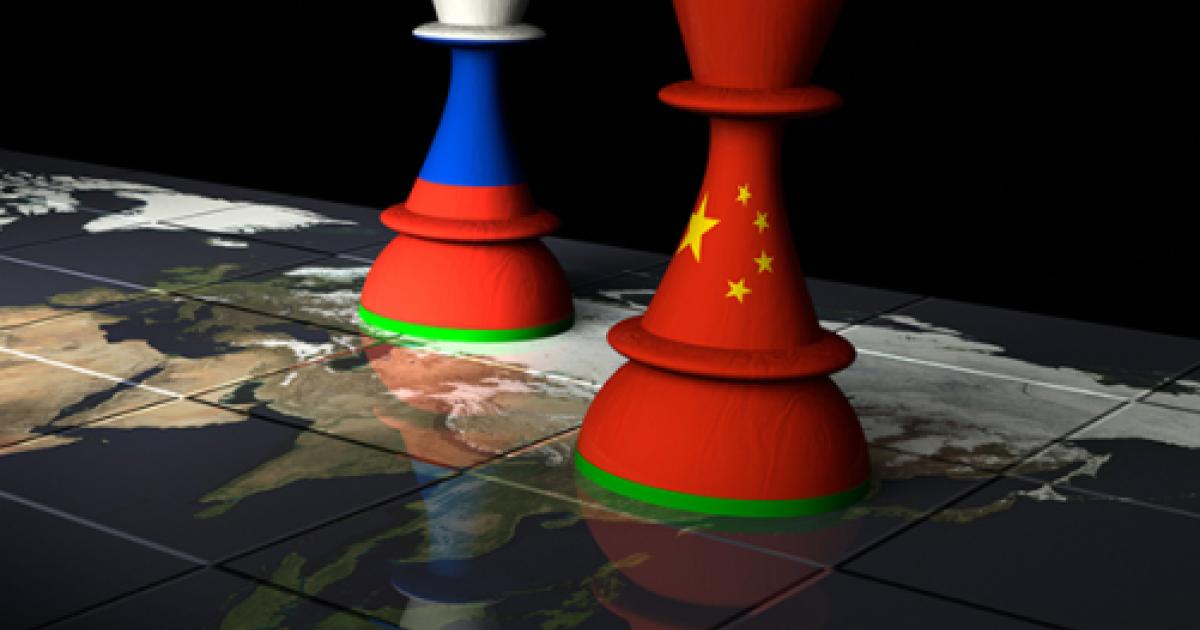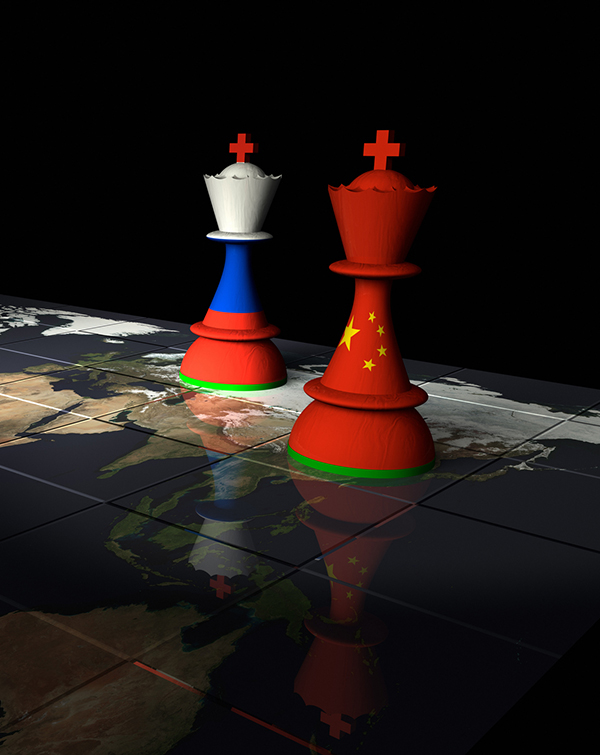
Russia and China are investing extraordinary resources to fund a global expansion of their state-owned journalism organizations, eclipsing independent journalism in Western nations and sowing misinformation for news consumers, a Hoover scholar says.
Markos Kounalakis, a visiting fellow at the Hoover Institution, analyzes the global news media infrastructure and state sponsored news outlets in countries like Russia and China. A former international correspondent, he is the author of Spin Wars & Spy Games: Global Media and Intelligence Gathering (Hoover Press, 2018), which is based on interviews with dozens of foreign correspondents, editors, policy experts, and academics.
Kounalakis was recently interviewed on the subject:
What is the big picture message to readers of Spin Wars and Spy Games?
Foreign correspondents and bureaus have always played a role in gathering intelligence and performing diplomatic tasks.
In the West, they have done this informally and their reporting is distributed widely as articles, broadcast segments, and documentaries that are used by governments as “Open Source” intelligence (OSINT).
In China and Russia, foreign bureaus and correspondents engage in reporting and analysis, too, but they deliver their most important findings in a proprietary way directly to the sponsoring state. In other words, they work as spies. They also engage in a formal way not only in intelligence work but also as diplomatic representatives, both able and expected to perform legitimate and active promotion of their state agendas and interests.
Here’s the contemporary problem: During the twentieth century, the West dominated the world both in information gathering and distribution, giving Western governments invaluable and market-driven data and analysis of the world. With the collapse of the Western journalism business model, these resources and Western capacities have dramatically diminished or entirely disappeared. As a result, Western intelligence resources and diplomatic tools have also weakened.
In this media vacuum, Russia and China have invested extraordinary resources to fund a global expansion of their state-owned journalism organizations, operating freely in foreign lands and exploiting the access available in open societies, in order to engage in intelligence operations and diplomatic actions.
The result? Western nations are losing the type of intelligence on which they have relied for years at a time when global challenges are rising, while the non-West is expanding and improving its capacities. This is providing China and Russia with unprecedented abilities and insights at a time when the capacities of Western nations like the United States are waning and their informal institutions are retrenching. This is one more example of how the West’s relative power is diminishing in the twenty-first century.
How do media outlets from China and Russia operate as intelligence gathering units?
First off, the media and journalism organizations in Russia (RT and Sputnik) and in China (CGTN, Xinhua, and China Daily) are all state-underwritten organizations. They exist to serve the state and the party and, therefore, exist to deliver propaganda and collect intelligence. That’s why all of these institutions have recently been required to report to the US Department of Justice under the Foreign Agents Registration Act (FARA).
With the exception of international surrogate broadcasters in the United States and elsewhere (Voice of America, Deutsche Welle, etc.) this is not true for Western countries. Instead, the West has a journalistic corps and media institutions that operate in a market-based system that is currently under extreme pressure and facing a business model collapse, thanks to the pressures and aggregation-models of Internet-based businesses like Google and Facebook.
While critically important during the Cold War, the minimal presence, high profile, official restrictions, and diminishing impact of Western surrogate broadcasters today makes them ineffectual in global intelligence-gathering as well as propaganda. RT, on the other hand, recently built up the largest YouTube news program viewing audience, rating them number one.
Second, Chinese and Russian institutions are now able to hire and deploy foreign nationals who are either unemployed or underemployed to work for them. This has multiple advantages, but one of them is that these former Western journalists have been trained to engage in an adversarial professional relationship with their own governments. They also bring to their non-Western outlets contacts and insights that would otherwise be unavailable to these foreign institutions.
Finally, these formal, state-owned organizations have a formal internal reporting structure that facilitates intelligence, both analytical and operational, to move up the chain of command to state decision-making bodies. In the West, this process is informal, uneven, and now, nearly non-existent.
How is this playing out in the 2018 midterm elections in the United States?
The elections are certainly being impacted by the propagandistic function of these institutions and states. Mainly, these institutions provide insight into the host-state’s power structure, social cleavages, and economic weaknesses, allowing foreign entities to exploit those identified vulnerabilities. They then become part of a systemic and full-spectrum approach with the intent of further cleaving and polarizing the target society into its dissenting factions, weakening the state’s political and societal strengths, and, ultimately, undermining the open system that allows these foreign organizations to operate as freely as they do.
If global news networks decline in the West, what does this mean for democracy, the flow of information, and freedom of the press?
There is no good news here. Western liberal democracies rely on their journalistic institutions and a free press to keep them healthy, informed, and functioning as a check on state power. The collapsing business model has already undermined the strength of these institutions in the West; the work of these non-Western state-sponsored institutions is working to put the nail in their coffin.
What can Western media do to dig deeper into this state-sponsored journalism/intelligence gathering dynamic in non-Western states?
Two things. One is to check these foreign agents and institutions, as has been recently done with FARA laws.
The second is more difficult. It requires Western nations to recognize the critical importance that journalistic institutions have played in intelligence gathering and policy formation. This is made more difficult in today’s environment when government officials denigrate these institutions and call citizens to question their veracity and importance while asserting that they pursue independent political agendas antithetical to their traditional roles.
Once Western journalistic institutions are properly valued, then a more aggressive set of policies need to be in place to make sure they survive as critical institutions performing important civic and national security functions. There also need to be targeted policies and financial incentives—perhaps in the form of tax incentives—to allow these institutions to thrive. They must be understood for what they are: critical national infrastructure that informally, but unquestionably, support democracy and critical national security assets. These assets provide insight, reporting, and both analysis and failure-analysis for the state and its national security apparatus.
The West needs to rebuild these capacities.
MEDIA CONTACTS:
Clifton B. Parker, Hoover Institution: 650-498-5204, cbparker@stanford.edu







